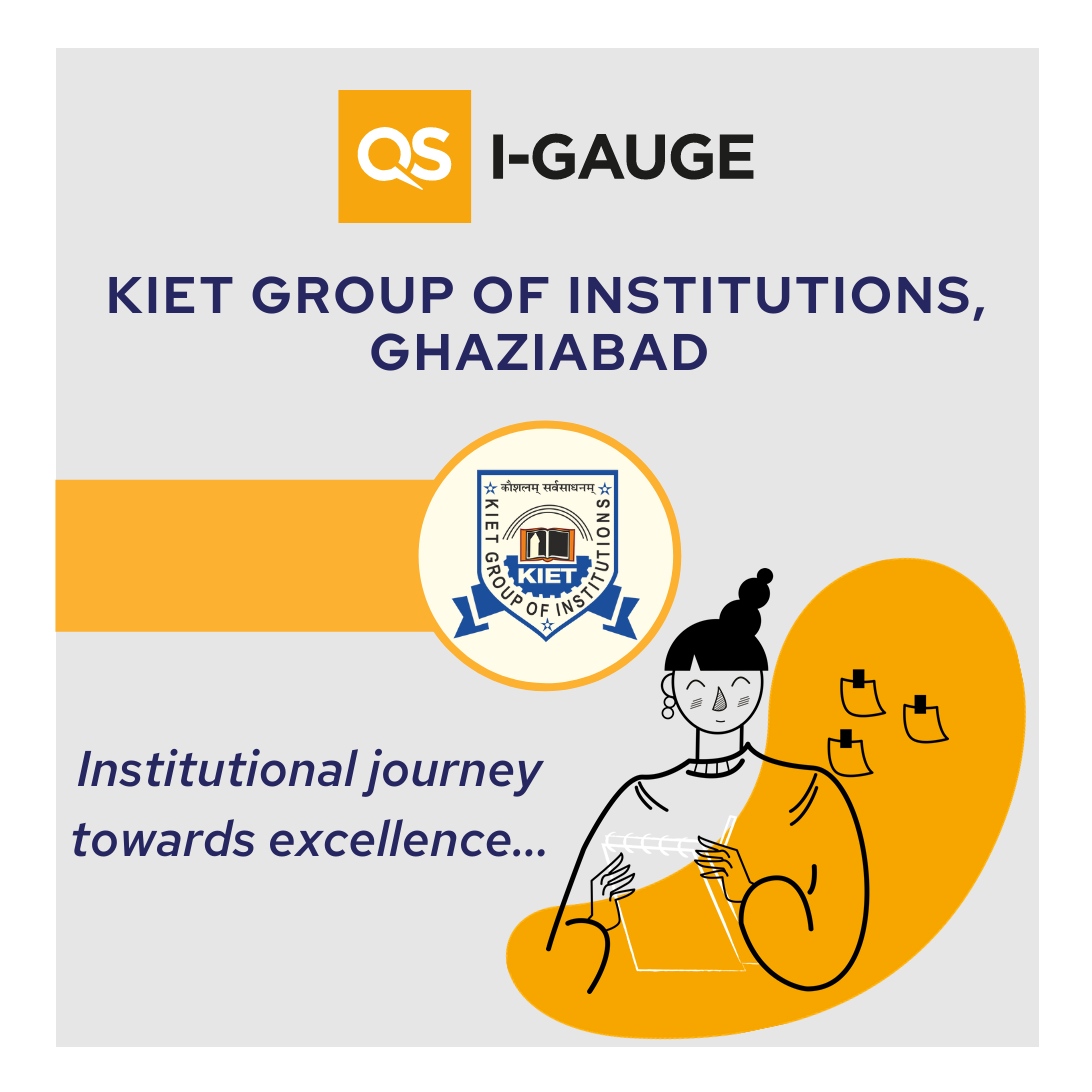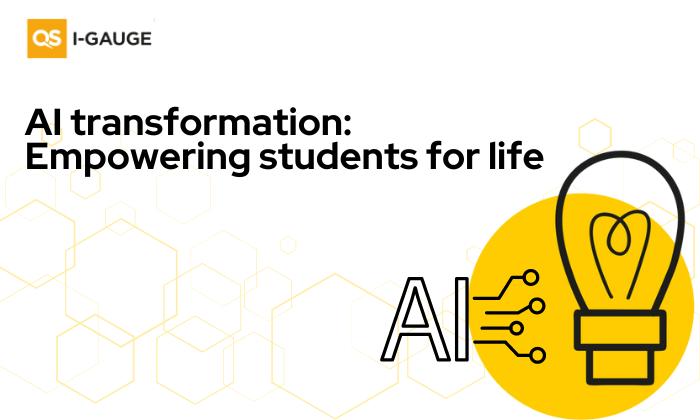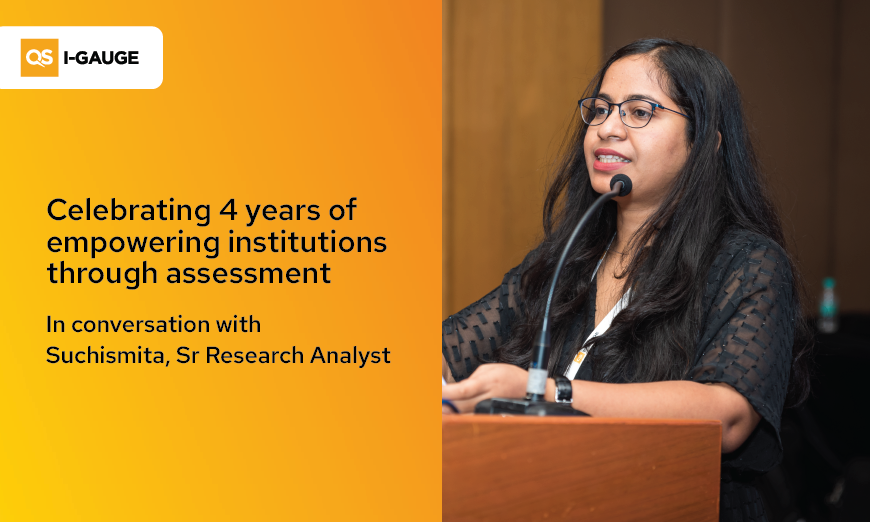
A Smooth Transition from Classroom to Online Learning: The Success Story of KIET Group of Institutions
About the Institution: KIET Group of Institutions (KIET), founded by the members of Krishna Charitable Society in 1998 and the Engineering Institutions under KIET Group, are recognised as one of the best engineering institutions in Delhi-NCR. KIET is affiliated with Dr A P J Abdul Kalam Technical University, Uttar Pradesh, Lucknow. The Institution’s belief in 'Achieving High' is aptly reflected in its academics, extracurricular activities, placements, and numerous education excellence awards.
KIET Group of Institutions’ experience with QS I-GAUGE was commendable in terms of transparency and thought process. The overall framework of QS I-GAUGE specifies every aspect for quality assurance, R&D, and other important functionaries related to the process of auditing. The objectives were clearly defined for the process of rating the Institution which included various criteria, each with its weightage and all the important parameters necessary for technical institutions’ quality assessment.
Decentralisation & Participative Management Approach
The flow of authority in the Institution is backed by a decentralised and uncomplicated approach with the clarity of obligations and duties of academicians, executives, chiefs, and employees at different levels. The Deans, Heads of the Department (HODs), Additional HODs, and functional Heads are administrators at their respective levels for the smooth functioning of various activities of the Institute.
Dean (Academics) is authorised to make decisions for all scholastic events in consultation with Director. HODs are enabled to make decisions at the department level with full scholastic independence inside the general rules of the senior administration of the institute. The best act of decentralisation was seen during the pandemic. The working framework had to be moved from classroom mode to online mode of teaching & learning. This shift of teaching & learning from classroom teaching to online was possible exclusively with the help of each department and the powers assigned to the Deans, HODs, and employees. To guarantee the easy flow into the online mode the employees were trained and guided by the IT department on the Learning Management System (LMS) and the advancement on online video lectures. 3000 plus video lectures were added to Moodle LMS and were made accessible to the students.
Best Practices by Internal Quality and Assurance Cell (IQAC)
Enhancing the teaching & learning process: The key aim of IQAC is to improve the academic and administrative performance of the Institution. Before the beginning of each semester, faculties submit the exercise plan of their subject. The active participation of students is tested through quizzes during the classes. The course documents that include previous years' question papers, question banks, notes, video links, etc. have been made available on Moodle LMS in an organised manner.
Development of Research Environment: The Institution identified a few faculty members as research faculty based on the nominations received from all the departments and the IQAC has designated them as Research Professors. The Research Professors are responsible for consultancy, funded projects, and research papers in the Science Citation Index (SCI) Journals and ensure the involvement of students in the research group which includes students and faculty members headed by Research Professors.
Distinct Features of the Institution
Outcome-Based Education (OBE): The Institution has implemented Outcome-Based Education in its teaching methodology. Outcomes are evaluated at every step and corrective measures are taken to fill the gaps. IQAC visits each department twice a semester to review the course files of all subjects and other relevant documents. For a clear understanding of Outcome-Based Education, the Institution has in-house developed ERP software through which all the Course Outcomes (COs) and Programme Outcomes (POs) calculations are carried out. Based on these calculations, gaps are identified and an action taken report is prepared for further improvement.
Online Teaching & Learning: During the pandemic, the Institution has shifted to the online learning model with the help of different platforms like Microsoft Teams, Google Classroom, and the Institution's Moodle Server. E-content was developed by faculty members in the form of self-shoot videos and course files which include the lesson plan, quizzes, question bank, previous year's question papers, case studies, assignments, lecture notes. All the video lectures developed by the faculty members are reviewed by Moodle Coordinators before uploading them on the KIET Career Maestro YouTube Channel. The links to all the recorded videos are provided to the students through Moodle LMS. All the E-content available on Moodle LMS is reviewed by IQAC and a report is prepared in the prescribed format. In the end, the report is forwarded to the concerned departments for corrective actions, if any.
Author
Sapna Yadav, Assistant Professor, KIET School of Management.
Disclaimer
The views & opinions expressed in this blog do not necessarily represent those of QS-ERA India Private Limited and/or its employees, partners, shareholders, or other stakeholders.







Leave Your Comments